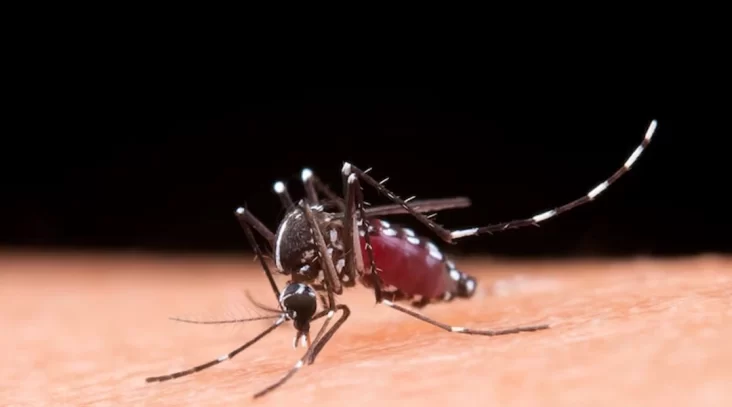The frequency of Aedes aegypti and Aedes albopictus mosquito-borne dengue diseases is changing due to climate change. With an annual estimate of 100–400 million infections, 96 million clinical symptoms, and 40.000 fatalities, more than half of the world’s population is in danger.
An estimated 397 billion people (in 129 countries) are vulnerable, despite indications of 30- to 50-fold increases in incidence in tropical and subtropical regions over the past 50 years and the fastest-growing risk of dengue infection.
Due to a number of causes, including increased global trade and travel, urbanisation, population growth, and climate unpredictability and change, which all create favourable circumstances for dengue vectors and viruses to proliferate, dengue disease has progressively increased over the past 50 years.
Threats to dengue vector-to-human transmission include climate change, rising temperatures, urbanisation, vector suitability, and population vulnerability.
What is Dengue Fever?
A virus called dengue fever is spread by the Aedes mosquito. Any of the four closely related dengue viruses can be the cause of this illness. Dengue is frequently also called “break-bone fever” because it severely damages the patient’s muscles and bones, resulting in pain that resembles the breaking of bones. People worldwide are affected by this illness, but it is particularly prevalent in South-East Asia, India, China, Africa, and Central America.
What Causes Dengue Fever?
One of the four viruses—DEN-1, DEN-2, DEN-3, or DEN-4—causes dengue disease. A patient can only contract a specific virus type once. They can, however, become infected by two, if not all four, at once.
Transmission of the Virus
Aedes mosquitoes carrying the dengue virus spread the disease to humans. No one can contract this virus from another. It only spreads when an infected person is bitten by an Aedes mosquito, which then bites another person.
Symptoms of Dengue
Age has an impact on the symptoms that a person displays. However, typically, 4–7 days after being bitten by an infected mosquito, the symptoms begin with a high fever.
Typical dengue symptoms include the following:
- Severe joint and muscle pain
- High fever up to 105 F
- Pain behind the eyes
- Severe headaches
- The entire body develops red rashes all over it.
- Diarrhoea, nausea, and vomiting
In certain circumstances, a patient may not experience any of these symptoms since the condition may be minor.
When young children are infected with dengue, they frequently have fever and rashes in addition to other, less severe symptoms. Other problems could potentially be the cause of these symptoms. You should seek medical advice as soon as possible if you have recently travelled to an area where dengue has been reported.
Sometimes, dengue fever might progress into a condition that could be lethal. All the usual dengue symptoms as well as bleeding from the gums, nose, or under the skin, which results from harmed blood vessels, are signs of dengue haemorrhagic fever. This kind of disease should not be overlooked as it can be fatal.
Preventing Dengue
The best defence against dengue is to deliberately avoid being bitten by mosquitoes. This involves dressing in light-coloured, flowy clothing that covers the majority of your body. The Aedes mosquito attacks during the day and in the late afternoons just before dusk, which is another reality. You can also take the following measures to protect yourself from dengue:
- Use insect repellents
- Verify that there is no stagnant water in the region.
- Wear full-sleeved clothes
- To keep mosquitoes out, keep your windows closed.
- Regularly scan your surroundings for any spots with standing water.


4 Comments
Pingback: Dengue Fever – Sujata Birla Hospital
Pingback: Legionnaires' Disease | Sujata Birla Hospital
Pingback: Mosquito-borne Diseases | Sujata Birla Hospital
Pingback: Respiratory Tract Infection | Sujata Birla Hospital